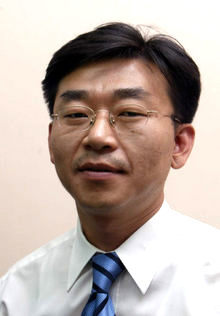Posted on : Dec.7,2006 13:56 KST
Modified on : Dec.8,2006 13:54 KST
By Kim Hoe-seung, editorial writer
Seok Dal-yun spent 49 days in room No. 168 in the infamous intelligence agency building on Namsan during the summer of 1980. The reason? The simple fact that his cousin had gone to what is now North Korea during the war, only to be sent south as a northern operative.
Investigators took turns subjecting him to water torture. They would stomp on his stomach to get the water out then put his head back in the bathtub, something each cell was equipped with. They shoved a ball pen ink cartridge up his urethra, saying the method was "the best way to stay awake." The torture stopped when he finally told them he had met with his cousin, someone he actually didn't know but had only been told about. A relative who had also been taken into detention died two months after being released.
The following January, the Agency for National Security Planning announced it had rounded up no less than 15 "North Korean operatives." Seok was among those. At one point, his family had to live on sweet potatoes for two months, as none of the neighbors were about to help a "commie's" children. Eighteen years later he was released, but even then his activities were monitored.
Kim Ik-hwan was living with his four siblings on an isolated island off of Yeocheon, South Jeolla Province when, in September 1971, Korean Central Intelligence Agency investigators showed out of nowhere. They even took his niece and the wife of his younger brother away on the same boat. They accused him of having been secretly in contact with a North Korean spy during the war. He was released five days later, but not before being beaten all over his body, his left shoulder broken. His niece was beaten until she fainted. Then she was raped. Kim went to the Blue House, the National Assembly, the National Human Rights Commission, and the Korea Legal Aid Corporation to appeal this grotesque treatment, but time and again he was told there existed no record of his detention.
The Truth and Reconciliation Commission began its work a year ago. A few days back, it issued its decision on the "torture and cruel treatment of the family of Kim Ik-hwan," formally recommending that the state apologize and take action to "restore the family's honor." Seok and Kim are typical examples of "fabricated spies." They are a minority even among the many victims of crimes by the state. Ascertaining the truth is slow and the frustration and anger is deep. It means a lot that the commission's first official finding is about Kim's case. Many more are waiting for the chance to be vindicated, and they have nowhere else to turn.
Please direct questions or comments to [englishhani@hani.co.kr]






